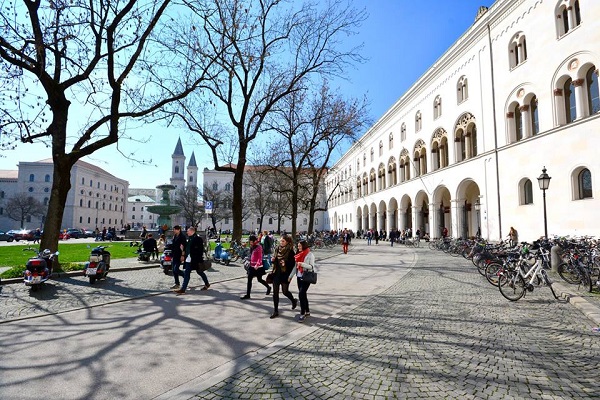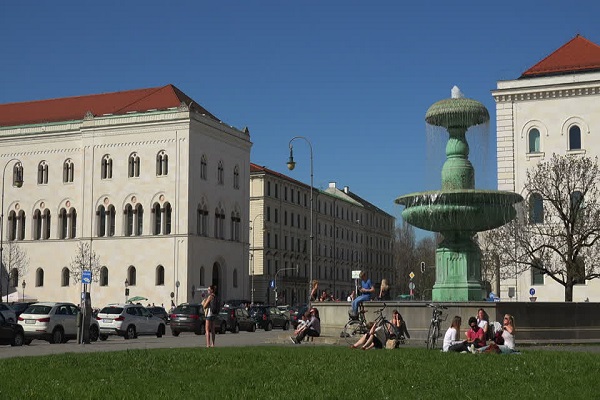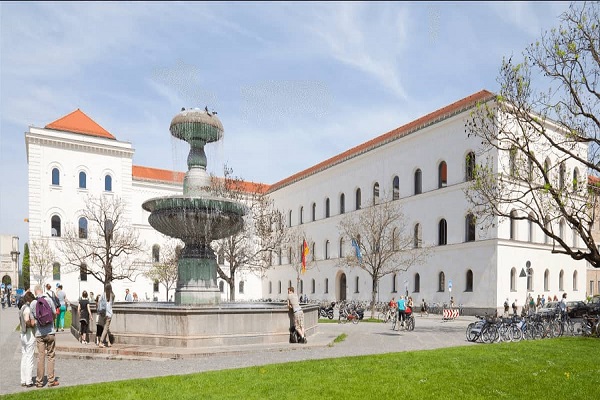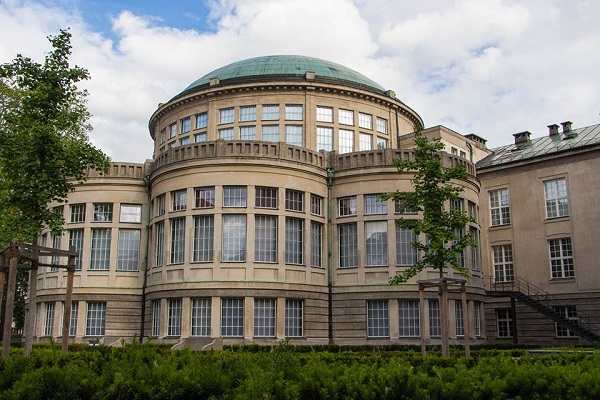University Rankings
- QS World University Rankings 54
- Times Higher Education World University Rankings 33
- Academic Ranking of World Universities 52
- QS Sustainability Ranking 217




1. Overview and History
Ludwig Maximilian University of Munich, commonly known as LMU Munich, is one of Europe’s leading research universities and one of Germany’s oldest, founded in 1472. Originally established in Ingolstadt, it moved to Munich in 1826 under King Ludwig I of Bavaria. LMU has a distinguished history of academic excellence and has been home to numerous Nobel laureates, philosophers, scientists, and influential public figures. It is widely regarded as a top destination for both research and teaching across a broad spectrum of disciplines.
2. Campus and Facilities
LMU Munich’s main campus is situated in the historic center of Munich, close to key cultural, political, and scientific institutions. The university also operates several other facilities across the city, including large hospitals, libraries, and specialized research centers. LMU offers state-of-the-art laboratories, modern lecture halls, well-equipped seminar rooms, and one of Germany’s most extensive university library systems. The blend of historic architecture and modern research infrastructure makes the campus both beautiful and functional.
3. Academic Programs
LMU Munich offers over 200 degree programs across a wide range of disciplines, including:
Humanities and Cultural Studies
Law, Economics, and Social Sciences
Medicine and Health Sciences
Natural Sciences and Mathematics
Veterinary Medicine
Philosophy and Theology
Undergraduate programs are primarily taught in German, while many master’s and doctoral programs—especially in the sciences and social sciences—are available in English, making the university highly attractive to international students.
4. Research and Innovation
LMU is globally recognized for cutting-edge research across multiple fields, including life sciences, physics, chemistry, neuroscience, philosophy, and political science. It is part of Germany’s “Excellence Strategy,” which provides additional funding to the country’s top research institutions. LMU collaborates with world-class research partners like the Max Planck Society, Helmholtz Association, and Fraunhofer Institutes, as well as international universities and organizations.
5. Internationalization
LMU Munich hosts more than 8,500 international students from around the world, creating a highly diverse and global academic environment. It maintains partnerships with over 500 universities worldwide, offering a wide range of exchange programs, dual degrees, and international research collaborations. The university provides dedicated support services, including German language courses, cultural integration programs, and international student advising.
6. Student Life
Student life at LMU is dynamic and enriched by Munich’s status as one of Europe’s cultural capitals. Students can participate in hundreds of clubs and societies, ranging from academic associations to sports teams and arts collectives. LMU also hosts numerous lectures, cultural events, workshops, and public talks. Munich’s excellent public transport system, vibrant cultural scene, and proximity to the Alps make it an attractive city for students.
7. Admissions and Tuition
Admission requirements vary depending on the program, but generally, undergraduate applicants need to demonstrate German language proficiency, while many graduate programs are open to international students with English proficiency. Like most German public universities, LMU Munich does not charge tuition fees, but students must pay a semester fee (around €150–€300) that covers administrative costs and a public transportation pass.
8. Notable Alumni and Achievements
LMU Munich has been home to many prominent alumni and faculty, including Nobel laureates such as Max Planck, Wilhelm Röntgen, and Thomas Mann. The university has played a crucial role in German intellectual and cultural history and has contributed significantly to global scientific and social advancements.
News & Updates
 Timeless Learning: Unveiling Oxford’s Unique Tutorial System and Academic Excellence
Timeless Learning: Unveiling Oxford’s Unique Tutorial System and Academic Excellenceby Piyush Chauhan
December 20, 2025
 Innovating Tomorrow: Discovering Cutting-Edge Research and Urban Life at UCL
Innovating Tomorrow: Discovering Cutting-Edge Research and Urban Life at UCLby Piyush Chauhan
December 20, 2025
 Beyond Textbooks: Experiencing Vibrant Campus Life at an American University
Beyond Textbooks: Experiencing Vibrant Campus Life at an American Universityby Piyush Chauhan
December 20, 2025
 Navigating Complexity: Oxford’s Insights on Global Policy and Ethical AI Challenges
Navigating Complexity: Oxford’s Insights on Global Policy and Ethical AI Challengesby Piyush Chauhan
December 19, 2025
 Engineering Tomorrow: MIT’s Breakthroughs in AI and Robotics Transforming Industries
Engineering Tomorrow: MIT’s Breakthroughs in AI and Robotics Transforming Industriesby Piyush Chauhan
December 19, 2025
Courses & Fees
Frequently Asked Questions
Yes, LMU Munich offers some Bachelor's level and Master's degree programs in English. However, generally, to study at this university, students are required to have enough knowledge of German and prove German English language proficiency through an approved language certificate. In total, 100+ courses are offered at Bachelor's level and 110+ courses are offered at Master's level. The university offers more than 300 courses. A few of the courses offered in English at the Master's level are Data Science, Economics, Biochemistry, Physics, Political Science, etc. The subject groups at this university are:
Arts and Humanities
Law, Economics, and Social Sciences
Mathematics, Life and Natural Sciences
Human and Veterinary Medicine
Yes, Ludwig Maximilian University of Munich offers an MBA program. The language of instruction of this course is German and English. Some of the highlights of the LMU Munich MBA programme are:
A flexible curriculum
Integrated practical experience
Vibrant environment
German Proficiency for International Students
International students must prove their language proficiency through either of the following German proficiency passing certificates:
Deutsche Sprachprüfung für then Hochschuluzugang (DSH)
Deutsches Sprachdiplom there Kultusministerkonferenz (DSD II)
Test Deutsch als Fremdsprache (TestDaF)
Telc Deutsch C1 Hochschule
Goethe Certificate B2
Telc Deutsch C1 Hochschule
Qualification Assessment examination
LMU Munich acceptance rate is around 10%. This signifies that the university is quite competitive to get into. It is consistently rank higher among the prominent rankings in the world. In 2025, as per one ranking publisher, LMU Munich ranks at #59 and as per Times Higher Education rankings, it ranks at #38 position. This shows that it ranks among the Top 100 Universities in the world in 2025. So, to get into this university, the applicants are required to have an exceptional academic background and meet all the university's entry requirements.
A few of the study areas of English taught master’s degree programs are given below:
Biochemistry
Data Science
Economics
Neuroscience
Journalism, Media & Globalization
Software Engineering
Physics
International Health
Theoretical and Mathematical Physics
